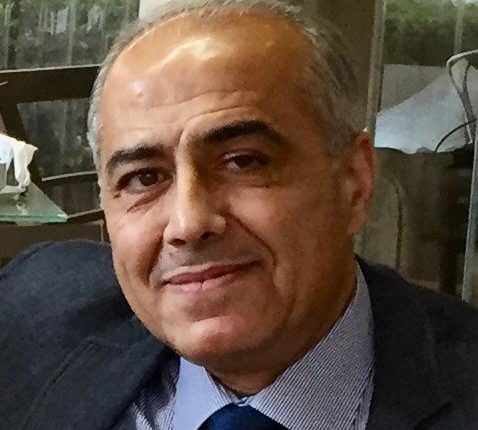TIME IS RUNNING OUT FOR LEBANON
By General Monzer El Ayoubi
Translation: Dr Pierre A. Sarkis

Cautiously, the 2020 parliamentary elections came by, and with parsimony, good increased and proceeded, regardless of all the flaws and practices whether by pull or push. It is a step that may devote a new stage in the life of the afflicted country different from the previous ones in cases and outcome. On the sixteenth day, the dust of the battle unveiled after the triage and the calculations of the favorite votes and the quotients, with results that carried some expectations and many surprises. And with complete inclination to prematurely prepare the victory for oneself, the celebrations came in tandem with readings and analyses from political parties and social or civic movements on several levels, in search for holes in the campaigns, as well as, the assessment of weak points and weariness in the mechanics of the campaigns, from a perspective of self-interest, not patriotism.
On the other hand, the development of the map of the interface alliances and the formation or syntheses of blocs, a factor against fragmentation reducing the intensity of the Byzantine polemic (a dialogue leading nowhere) expected especially in important decisions and bills introduced, will not be an easy task; for the decision to veto is easier than certainty, and the positioning here or there, with this bloc or that comrade, will be open to reneging hostage to separation at any detail or examination. In context, the power of money seemed stronger than the glare of arms. Ideological or partisan commitment, as well as sectarianism, was not in a better state or spared, whether from an objectional perspective or differentiation on a supposed fashionable and fruitful populist background.
Next, there is no real need for fortune-telling or throwing the cowrie to know the future of the country and its recesses… we live with the grey or do we cross to the white? There is no need to read the palms of the new or senior members of parliament, as expectations and comments came from Washington, DC, before the ink on the thumb of expatriate voters had dried up. At a seminar conducted by Zoom media at the Washington Institute for Near East Policy entitled “The Dynamics of Hizbollah, Shiites and the Elections of Lebanon: Challenges, Opportunities and Political Implications” which reverberated through media channels, was a speech by former Assistant Secretary of State for Middle Eastern Affairs David Schenker summarized as follows: a presentation of the strategy of the American Administration in opposing Hizbollah’s activities and the decision of sanctions imposed on entities and individuals affiliated with it, which affected also some of its allies; recognition of his administration’s standing behind the decision to lower Lebanon’s credit rating considering that the elections will not change the situation dramatically, stressing that the opposition was horribly divided, with its leaders described as narcissists and individualistic (they will devour each other and will not win enough seats to bring about a shift in the balance). In concluding, he said “The regime is malfunctioning and elections with such electoral laws clearly will not fix it.”
In a more detailed article by former US Assistant Secretary of State David Hill published on the website of the Wilson Center, in which he closely discussed the election results and Hizbollah’s presence in the Lebanese Parliament, and questioned whether Lebanon remains a priority for the US Administration, considering “Democratic practices are full of setbacks and the sectarian political structure will push towards paralysis. Prime Minister Najib Mikati will not be able to form a government that receives a vote of confidence by Parliament, and will move to lead a caretaker government. He concluded that time is running out for Lebanon.”
Several big questions deep in context because of its association with the permanence or disintegration of a homeland is a “chronic, not accidental option” include:
– Did David Hill quite touch on the resolve of Washington’s strategic choice on Lebanon? And on what scale of overlapping US interests in the region? Therefore, is this probable decision based on the success of the Vienna nuclear talks and the remaining Lebanese status quo on the issue of the demarcation line of the maritime border with the enemy? In this context, it makes sense to consider the recall of the drilling ship of the Greek Company Enerjian, which has the right to explore for gas in the Karish Field based on an Iranian guarantee that Hizbollah will not activate the land-sea Yakhont missile system.
– David Hill’s reference to the role of French President Emmanuel Macron on the Lebanese issue because of the impossibility of cutting the threads of association and the sum of the sound and field of political influences between Lebanese dynamics from the crises of the Middle East Region? So, will the latter be able to bring a new ruling version to Lebanon through a Paris-sponsored dialogue between the Lebanese parties? According to leaked information from French sources, the French Director of Foreign Security, Ambassador to Lebanon, Bernard Emmett will have a pivotal preliminary role in the upcoming connection to the ground communication cables “Ma’arab-Haret Hreik-Al Mokhtara-Mirna Al Shaluhi with the restoration of the role of Beit Al Wasat (Harriri) that cannot be dispensed with or underestimated, imposed and proven by a weak electoral interaction among the honorable Sunnite confession.”
– Will the authorities with its dilapidated structure which is an accomplice even a partner in the financial mafia crimes, be able to halt the crazy leaps of the dollar price and thus, ease or slow down the course of the collapse of the livelihood of people with its volatile repercussions?
– At what time will the international and regional green light shine for the return of displaced Syrians to their country, or was it hit by darkness?
– Will the US continue its material support codified in quantity and quality to the Lebanese Army and the popular support it has with the subsidiary security services in order to prevent security breaches? And the extent of its effectiveness and continuity?
From another point, the state of autophagy after the cases of free fall, mass collapse and then a deep impact, represents the final stage of annihilation, a mechanism of destruction and natural erosion for the impossibility of recycling the country’s dysfunctional and genetically distorted components: the failed state, the disjointed people, the worst system of government, corruption, the collapsed judiciary etc. The hybrid election law with its composition and results is only one of the main hormonal incentives for this process.
Finally, it is customarily obvious to see that the geopolitical changes in the region reflect on the internal situation and the mosaic structure is fertile ground. In containing all the facts and negative consequences: at the parliamentary level, impose distancing or neutralizing the factors of division, while controlling the extreme tense dialogue and the mutual accusations of betrayal and external manipulations from one side, and the violation of sovereignty and the control of the Hizbollah statelet from the other; the need to meet several future political entitlements by establishing good intentions and preventing damage, whether in politics (forming a new balanced government, the election of the president and members of the Office of the House of Representatives, the election of the President of the Republic), or in economic and financial solutions on par with the practice and pure national choices. It should be injected with the serum of the newly-elected deputies, imposing a change in the elements of the internal equation and results, turning towards a desired salvation to avoid deficiencies and prevent the indulgence in murder and the “financial recovery project is but a criminal example…”
Beirut, 22/05/2022
Scholar in Security and Strategic Affairs

